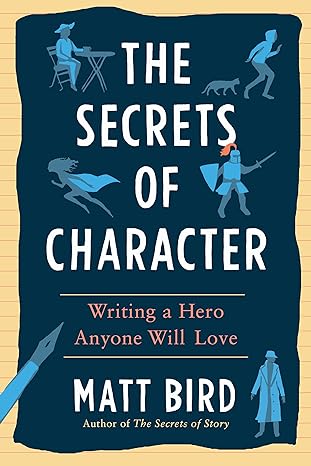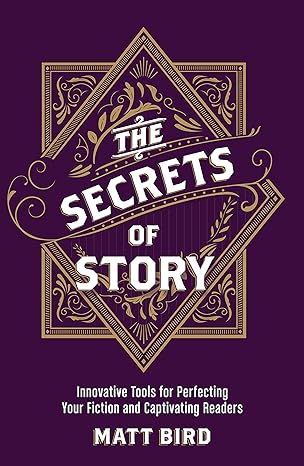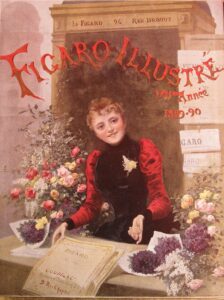“Often when you think you’re at the end of something, you’re at the beginning of something else.” –Fred Rogers
By PJ Parrish
A sequence of events this past month has been making me chew on a pretty important question: When is it time to stop writing?
I don’t mean stop writing whatever you’re working on. That’s a relatively easy decision that might mean abandoning a book that’s going nowhere and finding a new story to tell. I’m talking about the R-word.
Yup, this makes it official, crime dogs. I am retiring.
It is time to stop writing books. I know this now with all my heart. I have been thinking about this for about three years. Back then, like all of you, was feeling really at sea and done-in by the Covid scare. I figured it would pass and I would go back to my work in progress.
But now I know, this is it. Time to stop, hang up the cleats, and ride off into the Michigan sunset. Don’t fret for me. I am really happy with this decision. I just wonder why it took me three years to finally come to terms with it.
Here’s the thing. I am getting old. I am healthy and reasonably well off, thank God. But I want to use my time more wisely, while I still have the marbles and mobility to do so. As I said, some events of late have helped me to this place. I have two dear friends who are fighting cancer battles. Both are doing okay right now (one friend, who was really sick, now is back to skating in his over-65 hockey league!). But my time with them now is especially precious. As it is with my husband and small family. Also of late, I have had several writing friends confess privately that they are worn out and want to pull back from the publishing rat race. All are successful, have nice backlists and contracts. Several came home from the Bouchercon writer’s con with Covid and feelings that there are other ways they want to spend their time and money. I sense a retrenchment among the old guard.
Here’s the second thing. Writing is work. It’s not a physical thing. Writing takes no toll on the body. But it devours your time and energy. Alice Munro said, as she retired, “I don’t have the energy anymore.” Yes, writing is joyful and sure as hell beats filling potholes or waiting tables. But if you’re doing it right, it is a job. More so now that it has ever been, as the traditional publishing support system has deteriorated. You have to punch that time-card, at least five days a week.
John Updike used to rent a one-room office above a restaurant, where he would report to write six days a week. John Cheever famously put on his only suit and rode the elevator with the 9-to-5 crowd, only he would proceed down to the basement to write in a storage room.
I’ve been working fulltime since I was 18. I don’t want a job anymore. I have other things I want to do with those 40-plus hours. For health reasons (chronic back pain), I need a consistent exercise regimen. I want to travel more. I want to devote time to friends, family and my dogs. I want to keep my garden going. I want to learn more languages. I want to go back to the piano lessons I had to give up ten years ago. I want to read for pleasure. If things work out, I’d like to go live aboard for a while.
As Mr. Rogers says, when you’re at the end of something, you’re at the beginning of something else.
I think we make it hard on writers to retire. Maybe it’s because we imagine them as magical machines that produce pleasure just for us. As Don Winslow said, as he announced his retirement a while back, “I think a lot of people don’t expect writers to retire. They expect us to just keel over at the keyboard.”
Stephen King tried to retire but it didn’t take. In 2002, after almost dying in a bad accident, King said he was walking away from his horror show. But he barely slowed down, and just released his 64th book this month. More power to him.
When Lee Child retired, he handed care of Reacher over to his younger brother, and retreated to a ranch in Wyoming, where his only neighbors are moose and mountain lions. He claims he will never write another book.
Child said one reason he’s retiring from his series is because he struggles to identify with a younger audience. “I’m rapidly getting out of date,” Child told the Australian Financial Review, “and Reacher has always been behind the curve with technology.”
The timing was right, he says. “I had made myself a promise based on reading other people’s series … that I would never phone it in, and I never have. I cannot keep this up forever.”
I really get this one. I had a really great run that lasted almost 30 years. I made some money, won some awards, made the bestseller list. I have lovely memories of meeting fans and reading their emails and letters. I never phoned it in. No one wants to be the Brett Favre of crime fiction.
With our last series book, The Damage Done, we left our character Louis Kincaid in a very good place. We didn’t realize at the time it would be the last Louis book, but now as I re-read its ending, I know his character arc has come to a full, almost spiritual, conclusion.
And as Lee says, no one wants to be an anachronism. Through my work with the Edgars, I get a front row seat on the next generation of crime writers. Our genre is changing and as Brian Wilson wrote, I just wasn’t made for these times.
So what does retirement look like for me? Sort of like it does for Lee Child. “I’m going to buy a real comfortable sofa, and I’m just going to read for the rest of my life,” he says. “I was born in Europe. I have no work ethic.”
Like me, he feels the pull of other interests: “I’m an extremely poor guitarist,” he says, “and I may try to get better.”
But what about The Kill Zone? I’d like to stick around, if that’s okay with you all. I won’t have any new books to tout and I can’t contribute a whit about what’s going on with AI, YA, Amazon’s ACX, Binkist, or any other trend with initials. But I can help new folks with critiques and maybe start conversations here about what makes for good storytelling because that never changes.
So, be happy for me. Think of me as Mr. Chips, dawdling in the TZK doorway, going on and on about the value of friendship, the beauty of craftsmanship, and the need for reverence of our grenre’s forebearers. Haec olim meminisse iuvabit.
Peace out.



 I recently had a reader comment, “I noticed most of your characters are tea drinkers. Is that because you are?”
I recently had a reader comment, “I noticed most of your characters are tea drinkers. Is that because you are?” One of the more ubiquitous quotes about writing out there, almost always attributed to Hemingway, is: “There is nothing to writing. All you do is sit down at a typewriter and bleed.”
One of the more ubiquitous quotes about writing out there, almost always attributed to Hemingway, is: “There is nothing to writing. All you do is sit down at a typewriter and bleed.”













 I have no idea where Grandma got that phrase. I’m pretty sure she never listened to the southern rock band, Gov’t Mule. Or heard legendary wrestling commentator Jim Ross say someone was “being beat like a government mule.”
I have no idea where Grandma got that phrase. I’m pretty sure she never listened to the southern rock band, Gov’t Mule. Or heard legendary wrestling commentator Jim Ross say someone was “being beat like a government mule.”





 In the past, we had talked from the stage and needed sound equipment. Now we sat at chairs and tables in an area small enough that people could hear us without mics.
In the past, we had talked from the stage and needed sound equipment. Now we sat at chairs and tables in an area small enough that people could hear us without mics.


